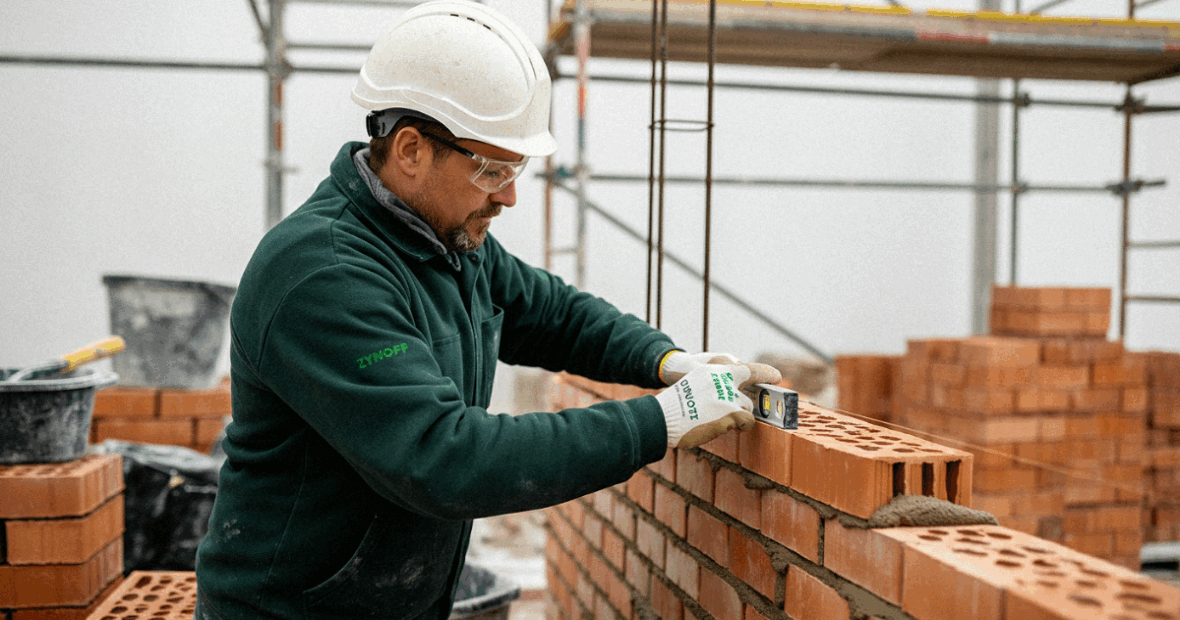The UK construction industry heavily depends on bricklayers, who build residential and commercial projects and infrastructure. The salary for this profession varies significantly based on experience, job location and employment status, reflecting the market value of the trade. This article is a complete overview covering salary trends, factors influencing earnings and pathways to becoming a bricklayer, providing valuable insights into the bricklaying profession across the United Kingdom. Below is a detailed breakdown of key information, including apprentice wages, salary ranges and job responsibilities.
Average Bricklayer Salaries by Experience Level
Bricklayer salaries in the UK vary based on experience, qualifications and type of employment. Below is a general breakdown:
- According to Office for National Statistics (ONS) data, newly qualified bricklayers typically earn around £20,000–£32,000 annually.
- Experienced professionals can expect £35,000–£40,000.
- Self-employed bricklayers or business owners may earn £50,000–£60,000 pre-tax, depending on project scale and operational costs.
Regional Salary Variations
Salaries for bricklayers can differ significantly across various UK cities. Here’s a comparison:
City Approximate Annual Salary
| City | Approximate Annual Salary |
| Manchester | £30,000+ |
| Aberdeen | £35,636+ |
| Birmingham | £33,000+ |
| Central London | £37,000+ |
| Plymouth | £36,689 |
| Self-Employed in London | £50,000+ |
Factors Influencing Earnings
Several factors can impact a bricklayer’s earnings:
- Experience and Qualifications: More experienced and highly qualified bricklayers can command higher wages.
- Location: Demand and cost of living in different regions affect salary levels.
- Specialisations: Bricklayers with restorative masonry or eco-friendly construction expertise may earn more.
- Employment Type: Self-employed bricklayers or those running their own companies often have higher earning potential but must manage business expenses.
Job Responsibilities of Bricklayers in the UK
Key duties include:
- Reading and interpreting building plans.
- Measuring work areas and setting out the first rows of bricks or blocks.
- Mixing mortar by hand or with a mechanical mixer.
- Laying bricks and mortar with precision.
- Shaping and trimming bricks using tools.
- Ensuring structures are level and plumb using spirit levels or plumb lines.
- Interpreting architectural plans and ensuring structural integrity.
- Cutting materials to size and applying waterproofing treatments.
- Specialising in heritage restoration or ornamental brickwork for higher earnings.
Becoming a Bricklayer in the United Kingdom
College Courses:
- Level 1 Diploma in Brickwork: Good for beginners, covers essential construction skills.
- Level 2 Diploma in Bricklaying: Provides specialist knowledge, like interpreting drawings.
Apprenticeships:
- Earn while you learn on the job.
- Level 2 Bricklaying Intermediate Apprenticeship: Takes about 2 years. Requires GCSEs in English and maths (or equivalent).
- Level 3 Craft Bricklaying Advanced Apprenticeship: This takes about 18 months and requires 5 GCSEs (grades 9-4/A*-C), including English and maths.
On-the-Job Training:
- Provided by some employers on-site.
- It may take longer and not result in formal qualifications.
CSCS Card:
- Required to work on most construction sites.
- Demonstrates necessary training and qualifications.
Bricklaying Apprenticeships
Apprenticeships offer a pathway into bricklaying, combining practical work with study. In the United Kingdom, apprenticeships typically last 2–3 years, combining on-site training with formal qualifications. As of April 2024, the minimum wage for apprentices starts at the National Minimum Wage of £6.40 per hour during their first year, rising to age-appropriate minimum wage rates after completing this period.
Average Earnings:
-
- For apprentices aged 18 and under: approximately £6.40 per hour.
-
- For those aged 18-20: around £8.60 per hour.
-
- For ages 21 and over: about £11.44 per hour.
Apprentice bricklayers usually earn around £11,000. However, some employers offer starting salaries at £18,000 per year, yet they mainly target areas of high demand.
What Do Apprentice Bricklayers Do?
- On-the-Job Training: Work with experienced bricklayers on construction sites.
- Practical Skills: Learn to lay bricks, blocks and other masonry materials.
- Fundamental Skills: Acquire basic bricklaying techniques.
- Support: Assist bricklayers on construction projects.
- Mortar Mixing: Prepare and mix mortar.
- Positioning: Learn to position blocks accurately.
- Construction: Build structures according to specifications.
- Classroom Learning: Study building regulations, health & safety and construction techniques.
- Safety: Adhere to safety regulations and guidelines.
Training and Education for Bricklaying Apprenticeship
Becoming an apprentice bricklayer requires formal training and compliance with specific prerequisites:
- Age: Be at least 16 years old.
- GCSEs:
-
- Some GCSEs, including maths and English.
-
- Specific grades may vary, but generally, they’ll need GCSEs in grades 9-3 (A* to D) or equivalent. Some apprenticeships may require a minimum of Grade 2/E in English and maths GCSE or Level 1 Functional Skills.
- Skills: Good hand skills, the ability to work well with others and excellent attention to detail.
- Passion: A demonstrated passion for the construction industry.
- CSCS Card: Each apprenticeship level requires a Construction Skills Certification Scheme (CSCS) card because apprentices must work in construction sites.
- Employment: All prospective apprentices must have existing employment with the industry or secured employment.
- Functional Skills: Apprentices must achieve Level 1 Functional Skills in English and maths before taking their Level 2 assessment to proceed with the end-point assessment.
- Interview: Job candidates must fulfil the entry requirements while participating in an official interview.
For a detailed roadmap on starting your journey in bricklaying, check out our Comprehensive Guide to Bricklaying Apprenticeships in the UK
Bricklaying in the UK offers a rewarding career with diverse opportunities for professional growth and competitive earnings. Aspiring and experienced bricklayers can make informed decisions to excel in this field by understanding salary ranges, regional differences and the qualifications required. The construction industry provides structured development paths for becoming skilled bricklayers through apprenticeships, formal education and on-site training that meet different professional goals.
